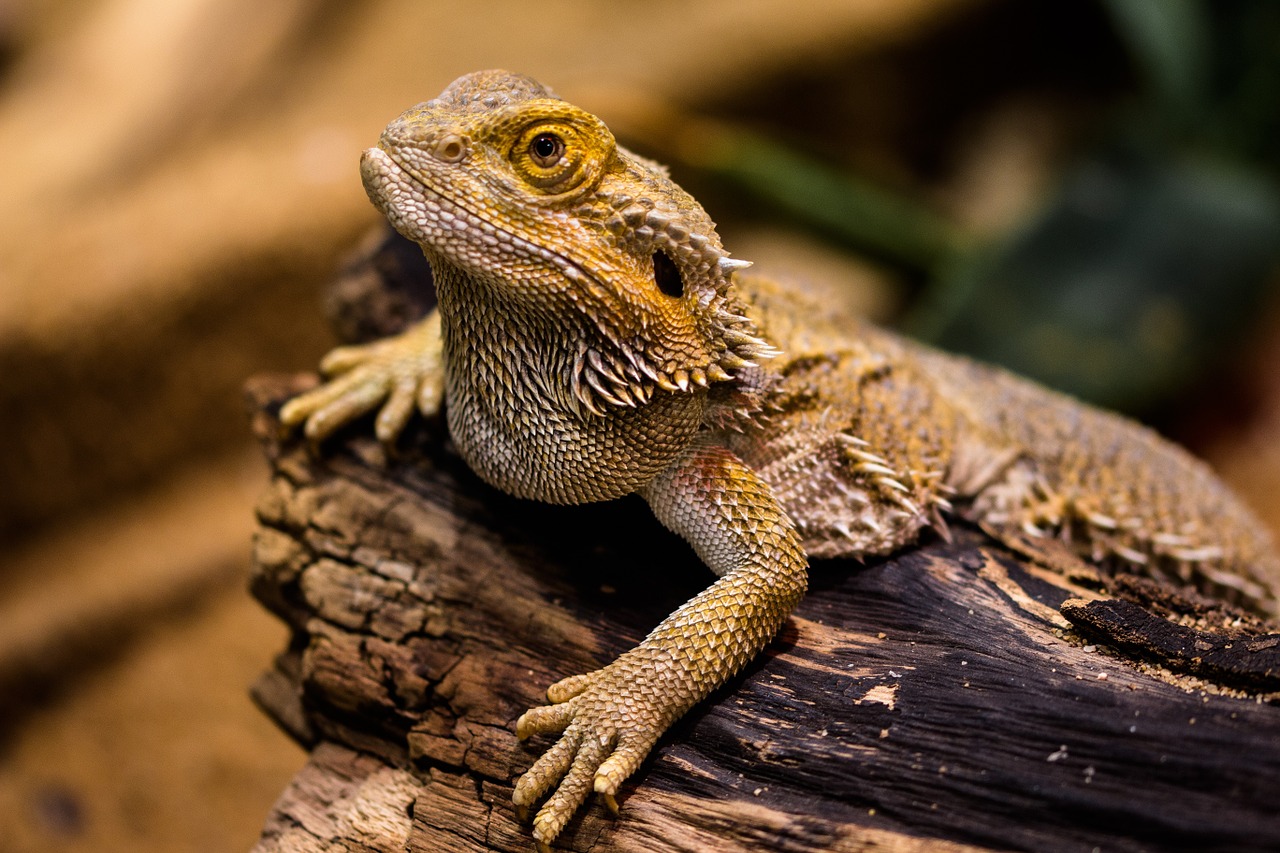
Bearded dragons, also affectionately called beardies, are extremely popular family pets. And part of the appeal is meal time for your exotic pet. Kids (and adults) love to watch the bearded dragon snap up its food with its quick tongue. And you can even feed most bearded dragons by hand, letting them snatch the food from you. These reptiles, however, have a unique diet compared to many other exotic pets. They are omnivores, and that means you can feed them a fairly varied diet. This guide will show you exactly what to feed your bearded dragon.
The main course
Just because a bearded dragon can eat many different foods does not mean that you can just feed it whatever you have in the refrigerator. They still have specific nutrition needs that have to be met through their diet. The primary food you should be feeding your beardie is live insects.
A bearded dragon should receive insects once every day. Good options include:
- Cockroaches
- Crickets
- Mealworms
- Waxworms
- Earthworms
- Superworms
You can find most of these at your local exotic pet store. The Tye-Dyed Iguana carries several varieties of live insects for food. Note that a bearded dragon will attempt to eat pretty much any insect that moves. It is up to you as the owner to make sure your pet is eating safe insects. Your best bet is purchasing insects specifically sold as reptile food. Bugs that you catch yourself may have been exposed to pesticides and insecticides that could harm your pet. Crickets and cockroaches are the most common staple foods for beardies.
What else can your bearded dragon eat?
In addition to a steady diet of insects, your beardie will require daily vegetables. Most vegetables that are eaten by people are also entirely safe for your bearded dragon to consume. The only caveat is that what you feed your pet should always be raw. In fact, your omnivore will likely ignore cooked vegetables if you offer them. Squash, bell peppers, zucchini, carrots, sweet potatoes, celery, cucumber, kale, and collard greens are all readily accepted by most bearded dragons, as well as many other common vegetables.
You can also feed raw fruits, but these should not be given daily. Fruits are more of a treat. Apples, berries, melon, raisins, papaya, mango, and even grapefruit are safe and appealing to your pet. Of course, a specific animal may have its own particular tastes. So you will have to experiment to see which fruits and vegetables your beardie prefers.
These foods can be purchased wherever you buy your own produce. Just wash anything you feed to your pet to remove pesticide residue.
What NOT to feed your bearded dragon
One vegetable that you should keep off your pet’s grocery list is iceberg lettuce. It may be a staple in many salads, and maybe you love its crunch. But your bearded dragon needs food that provides it with nutrition, and iceberg lettuce provides very little other than water.
If you have questions about whether a particular food is safe for your reptile, reach out to us on Facebook and we’ll get back to you with an answer.
